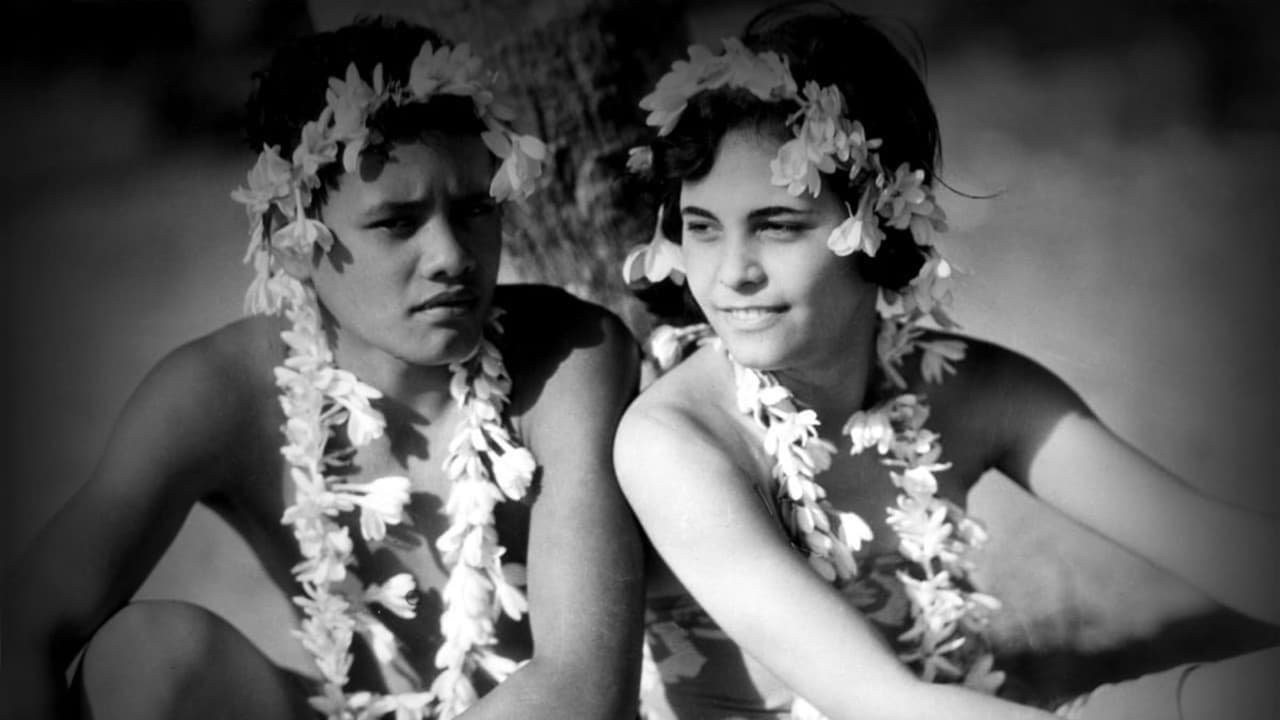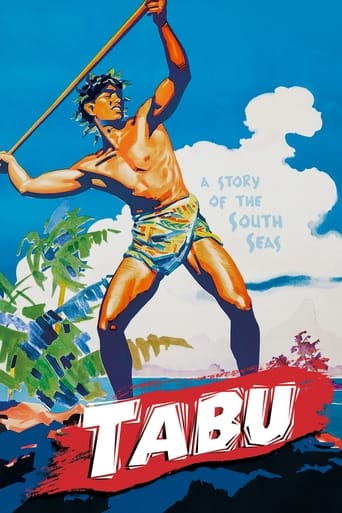

Save your money for something good and enjoyable
... View MorePeople are voting emotionally.
... View MoreA Disappointing Continuation
... View MoreWhen a movie has you begging for it to end not even half way through it's pure crap. We've all seen this movie and this characters millions of times, nothing new in it. Don't waste your time.
... View MoreA stunning docudrama takes the beautiful landscapes of Bora Bora and turns it into a visual paradise to drool over. Absolutely stunning and sumptuous in every way, this shows the every day play and work of the happy go lucky south sea natives and the growing love between a young man and girl, threatened to be separated forever when it is commanded by the order of the local chief that she be made the honorary virgin of the volcano, untouched by man. Any attempts to take away the virgin or deflower her is a curse for all, but young love, even among the superstitious allows no such circumstance to be separated, putting the two on the run for their lives.Ending up on a nearby port, the two lovers do their best to hide from those looking for them, even having fun in a modern native dance, nothing like they've ever seen before. But the dangers are constantly looming, every glance at them is a risk of being caught, and that keeps this flowing with excitement at breakneck speed. The attractive, barely covered cast does a great job without dialog, the only narration being a series of letters to indicate the passage of time and to reveal the most important if details. This is F.W. Murnau's masterpiece, filled with reminders of the dangers these free loving people faced, through nature, through superstition, through chance. The Kino DVD features an extremely memorable musical score that really helps the emotions of the film tell the story until its completion.
... View MoreDirector F. W. Murnau's films are always interesting and amazing to watch. However, despite some very positive press concerning this final film, I was rather disappointed. Yes, it was well-made. But, for 1931, doing the film as a silent just seemed a bit old fashioned and out of date--something Murnau NEVER was when directing such classics as NOSFERATU, THE LAST LAUGH and FAUST. These were all highly innovative films and represented the absolute cutting edge in film. But TABU on the other hand just seems stuck and behind the times. While it does have a very interesting story, excellent on-location filming and nice music and sound effects, the film looks like it was made pre-1930 because there were no voices. I am a HUGE fan of silent films, but still feel compelled to complain about this.Not a bad film, but certainly a skipable film and nowhere nearly as well-done as his other movies. Plus, in 1928 (three years before TABU) a very similar film, WHITE SHADOWS IN THE SOUTH SEAS was made and Murnau's tale is of about equal quality.
... View MoreDirector F.W. Murnau wisely stuck with the silent film medium he knew so well to cover this story of native islander life in the South Seas. The documentary style works very well for the first half of the movie. The landscapes are beautiful, and the daily life activities of the islanders are interesting to watch. The film loses momentum, though, when it begins to concentrate more on the narrative story of two doomed lovers. The storyline just never gets that interesting, despite being handled well by Murnau. Won an Academy Award for best cinematography, although the award probably should have been for best scenery. You can't really credit the DP for getting to shoot in such a beautiful location.
... View MoreSouth Seas dramas down through the decades have involved a lovely woman with one layer of scanty clothing, and a man who is chiefly attired in bronzed muscles. Both are Rousseauian children, taking rapturous joy in carnality and in their sun-light surroundings. Invariably they run afoul of the hungry island gods, rapacious white man, or combination of both. It's a genre done in John Ford's "Hurricane" and other movies with Dorothy Lamour; "Bird of Paradise" with Debra Paget; the various "Blue Lagoon" movies; up to the 1980's little seen "Beyond the Reef." This one has one thing distinguishing itself from the others - the cast is all actually Polynesian, or partly so (sorry Dorothy). It does bring in the common troubles of indigenous peoples: wanting to escape their stifling tribal atmosphere, they have a hard time coping with the outside world's currency economy and alcoholic drink. The movie eschews the Hollywood ending. Anne Chevalier is a treat, and a climatic moment late in the movie is directed for maximum shock.
... View More